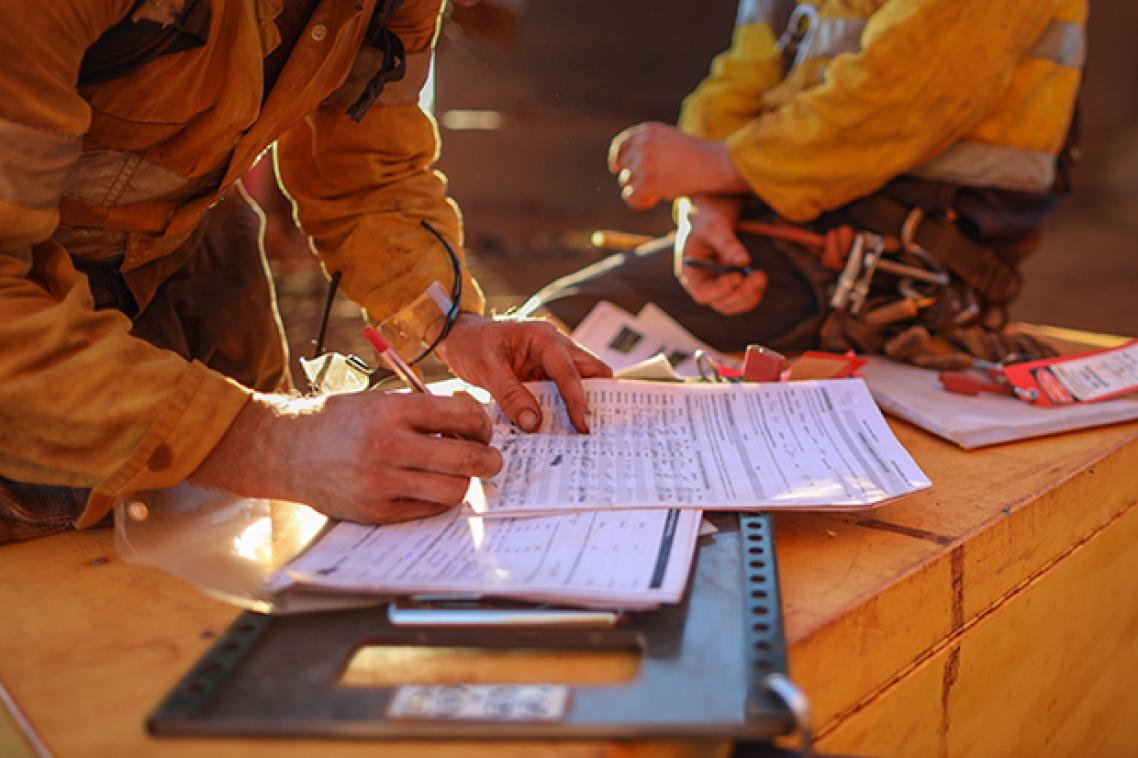Research investigates returning to work after dust lung disease

University of Queensland research is at the forefront of finding ways to improve the return to work for people diagnosed with dust lung disease.
A research team, led by Nikky LaBranche from UQ’s Sustainable Minerals Institute, has been awarded $567,473 from the Queensland Government to review and make recommendations to improve the pathway for those returning to work after diagnosis.
Ms LaBranche said the three-year project would start with a review of the current return-to-work pathways available for workers diagnosed with an early-stage dust lung disease, such as silicosis or coal worker's pneumoconiosis (black lung).
“Being diagnosed with an occupational dust disease can have a huge impact on people’s lives, and it can have dire consequences,” she said.
“For those with an early-stage diagnosis who are able return to work, it’s important they are supported throughout the process and have a safe and dust-free work environment.
“We hope to conduct 120 interviews with workers, return-to-work coordinators, occupational physicians, regulators, and others to find out what is working and not working.
“We’ll also analyse alternative work options to see if there are any obvious low-dust places within their industry that would be suitable for workers.”
The research will focus on workers in both mining and artificial stone industries.
“In the mining industry there are ways for workers to stay on in more administrative-focused positions – and there are ways of doing this well and not so well,” Ms LaBranche said.
“It is harder for the engineered stone industry where businesses are much smaller, as there are often no jobs out of the dust that people can move into.”
Associate Professor Kïrsten Way from UQ School of Psychology said return-to-work processes could influence mental health in several ways.
“Work-related injury and illness can lead to grief and loss and workers may experience identity transitions and changes to their social connections,” Dr Way said.
“All of these things have the potential to cause psychological harm if they aren’t managed well, particularly in the context of return-to-work.
“On the flip side, work can be called into service to promote recovery. It can enhance worker mental health by providing meaning, purpose, positive identity, social connections and professional and personal development.”
Queensland Minister for Industrial Relations Grace Grace said the Miles Government was proud of its strong record to protect the health and safety of Queensland workers, but always wanted to do more.
“Funding this research is just one of the ways the government is working to protect workers from contracting an occupational dust disease and supporting those workers who have been diagnosed,” she said.
“Sadly, these diseases can be fatal.
“There is hope through early detection – workers with early stages of a dust disease have a strong potential to return to work, and businesses need to make sure they return to a safe environment with no continued exposure.
“That’s why we committed at the election to fund research to help prevent these diseases, to pick them up earlier in affected workers, and to find more effective treatments.”
Media contacts
Nikky LaBranche
n.labranche@uq.edu.au
+61 407 610 108
Sustainable Minerals Institute Media
communications@smi.uq.edu.au
+61 447 812 081
Related articles

Nature versus nurture question addressed in landmark study

Brazil claims to be an environmental leader. Are they?
Media contact
UQ Communications
communications@uq.edu.au
+61 429 056 139
